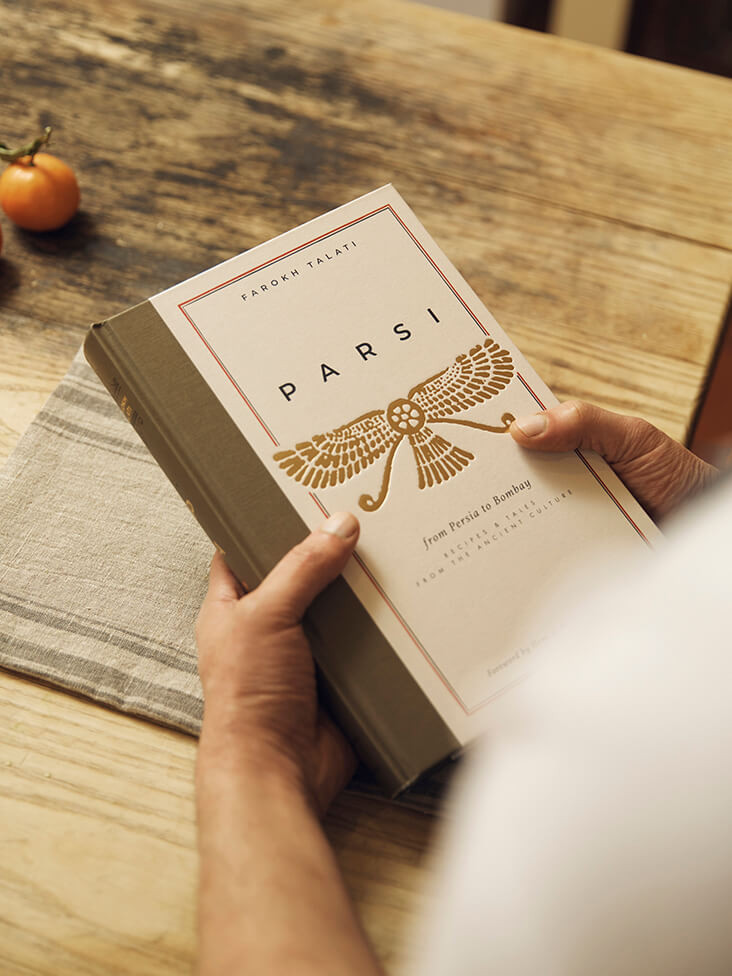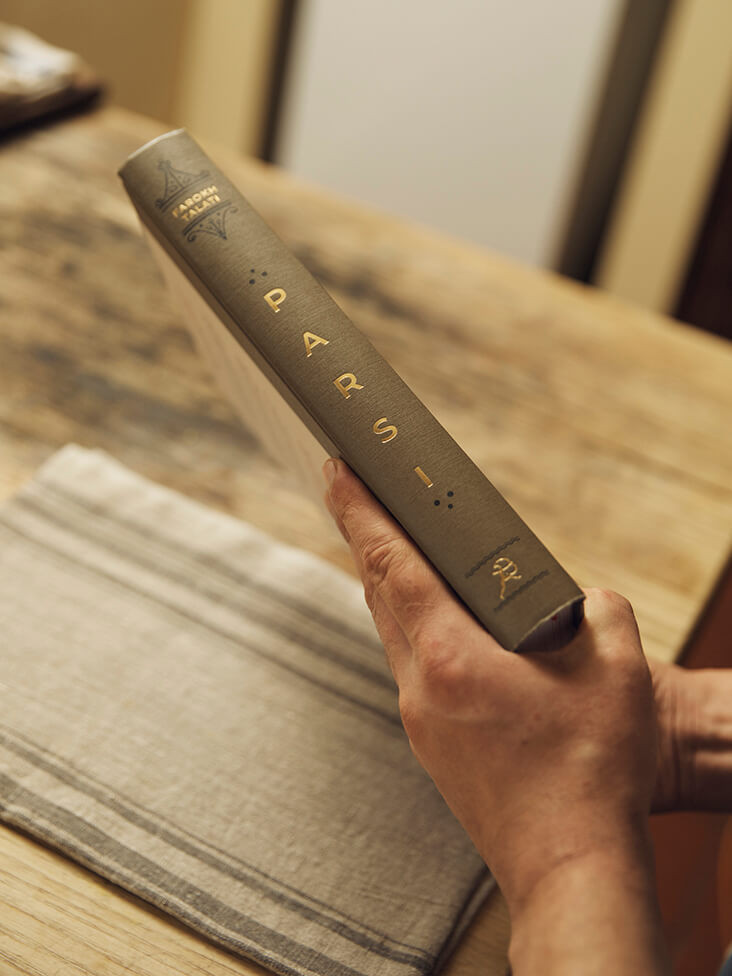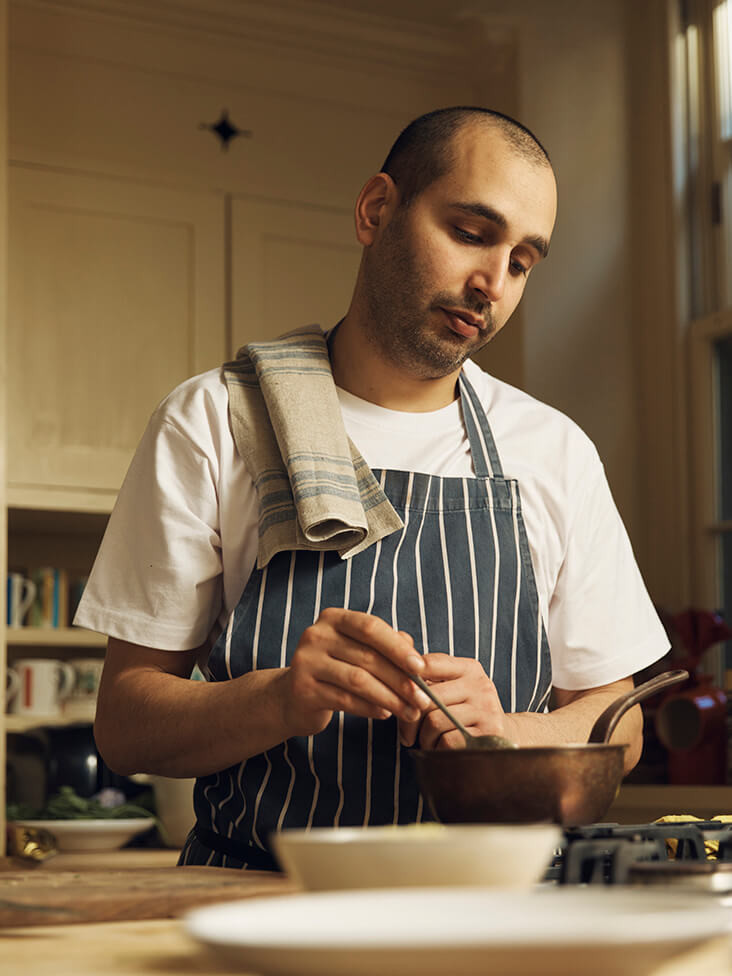
Stepping into St John Bread And Wine in London’s vibrant East End is more than just dining; it’s an immersion into a philosophy of calm, creativity, and culinary excellence. At the heart of this acclaimed restaurant, sister to the Michelin-starred St John, is Head Chef Farokh Talati. His warm smile and gentle demeanor belie the powerful presence he commands in the kitchen, a space he orchestrates with quiet authority. Our encounter at St John Bread and Wine offered a unique glimpse into Farokh’s world, a world deeply rooted in his Parsi heritage, his passion for nurturing talent, and his dedication to creating memorable dining experiences.
Our initial meeting unfolded unexpectedly, when my son, Kolya, joined me. Farokh’s immediate invitation for Kolya to assist in the kitchen spoke volumes about his inclusive and mentoring nature. For three transformative hours, Kolya worked alongside Farokh’s sous chef, Paris, during lunch service. This experience ignited a passion in my son, a testament to the inspiring environment Farokh cultivates at St John Bread and Wine. What began as a simple invitation to explore recipes blossomed into a series of culinary adventures, from sampling Chinese dumplings in Chinatown to savoring Russian pelmeni in Soho, and enjoying exquisite Japanese broth at Koya. These food explorations, coupled with conversations about the restaurant industry and Farokh’s analog photography, forged an unexpected friendship.
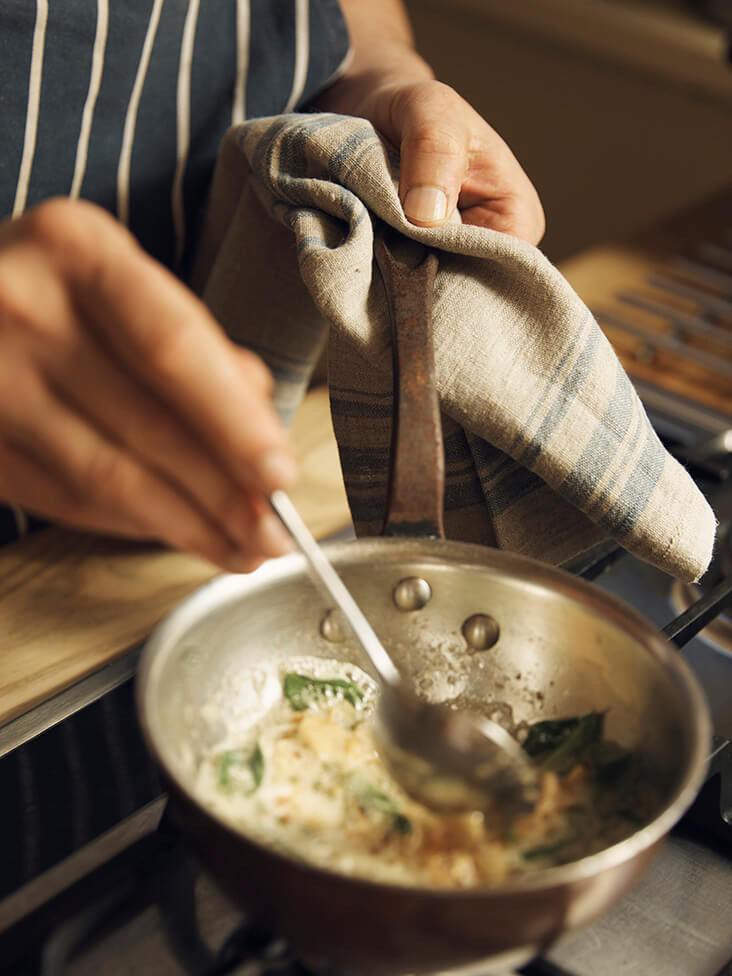
My own limited forays into hospitality contrasted sharply with the nurturing kitchen environment Farokh described at St John Bread and Wine. My past experiences were fleeting – waitressing in my teens and a brief stint in a Franco-Brazilian club. More recently, I worked as an illustrator for Jason Atherton, a surprising connection given that Angela Hartnett, Farokh’s mentor and a Gordon Ramsay protégé, had previously collaborated with Atherton. It was Angela Hartnett’s influence that shaped Farokh’s approach to running the St John Bread and Wine kitchen – an ethos built on diligence, business acumen, and a remarkable harmony. Observing the inner workings of St John Bread and Wine, and speaking with Farokh, redefined my understanding of a professional kitchen. The absence of shouting and stress, replaced by swift, coordinated movements and a culture of encouragement, was striking. This was particularly impactful as my son aspires to open his own restaurant one day. Farokh’s story and work ethic offered a powerful counter-narrative to the often-exaggerated harshness of the industry, instilling hope and inspiring a new level of support for Kolya’s culinary ambitions.
This encounter with Farokh Talati at St John Bread and Wine became a transformative experience, offering a hopeful perspective on the restaurant world and the potential for nurturing environments within it. In the following sections, we delve deeper into our conversation with Farokh, exploring his insights on kitchen management, mentorship, and the unique philosophy that makes St John Bread and Wine a standout in London’s dynamic culinary scene.
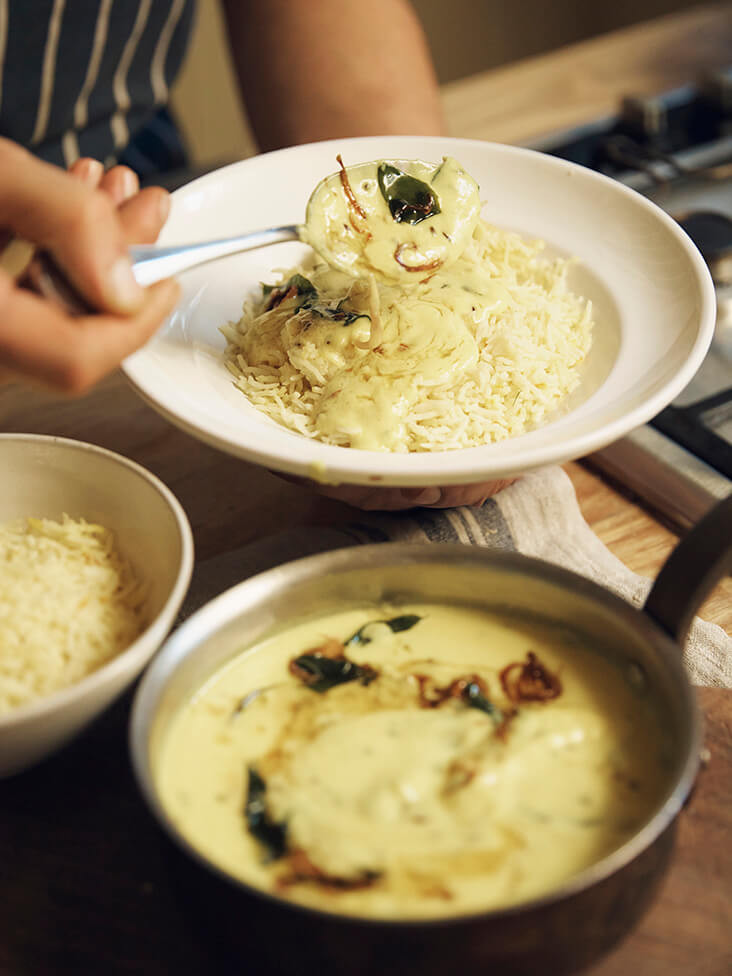
Inside the Kitchen of St John Bread and Wine: An Interview with Farokh Talati
Could you introduce yourself and your role at St John Bread and Wine?
“My name is Farokh Talati, and I am the Head Chef here at St John Bread and Wine in London. Beyond the kitchen, I recently authored a cookbook exploring Parsi cuisine. My heritage is a blend of Persian and Indian influences, which deeply informs my cooking. Outside of the culinary world, I have a love for dogs, photography, and the simple pleasure of wandering through Soho.”
Managing a bustling kitchen like St John Bread and Wine with a diverse team must be demanding. How do you navigate potential conflicts and maintain a positive atmosphere?
“Often, the most effective approach to difficult situations is to pause and observe. Silence can be incredibly powerful. Malice is rare; we generally operate as a well-coordinated team. As I’ve matured, I’ve become more mindful of where I direct my energy. Astrology also offers perspective; considering the vastness of the universe can make daily workplace issues seem less overwhelming. The key is to focus on solutions. If a problem is solvable, address it. If not, acceptance is crucial.”
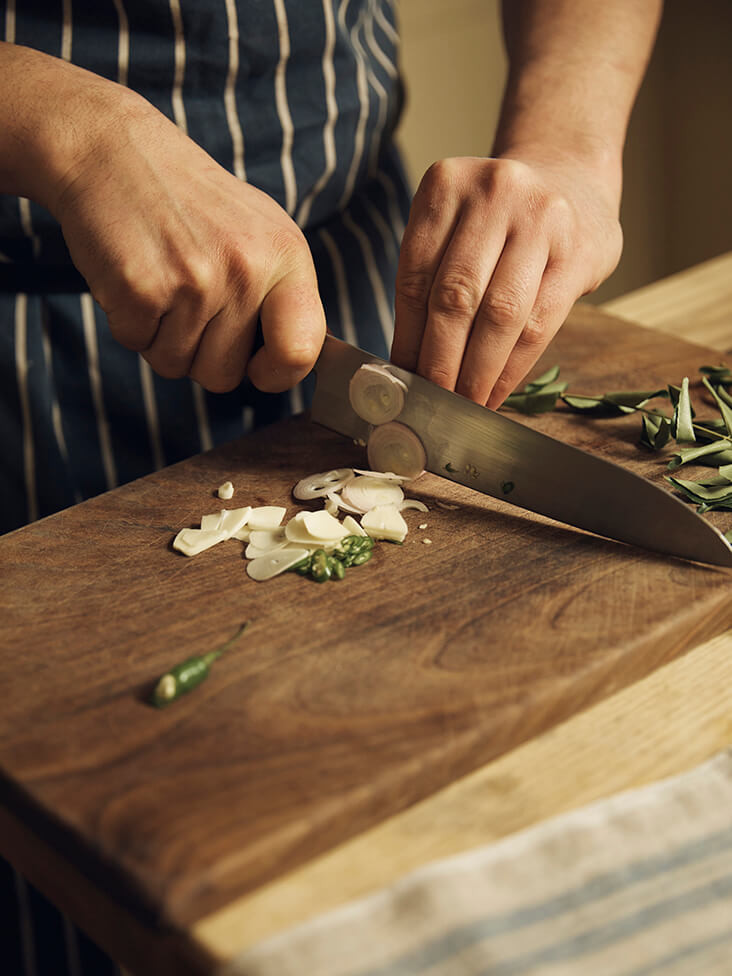
You mentioned mentorship earlier. What qualities do you believe are essential for being a good mentor, especially within a demanding kitchen environment like St John Bread and Wine?
“Patience is paramount. Understanding that comprehension takes time and repetition is key. However, witnessing someone finally grasp a concept and excel is incredibly rewarding. My experience with Angela Hartnett taught me invaluable lessons. As a young chef, I eagerly assisted her, whether it was at private events or charity functions. I was persistent, offering help with everything from car packing to food prep. Angela’s patience with me was formative. Mentorship is about embracing responsibility for someone else’s growth.”
What aspects of your role at St John Bread and Wine do you find most rewarding now?
“Initially, the prestige of working at St John was a significant draw. However, that feeling evolves. Now, the most fulfilling part of my job is knowledge transfer. This isn’t limited to younger chefs; it encompasses individuals of all ages and backgrounds who enter this profession. The true reward is in passing on the culinary knowledge I’ve accumulated and inherited.”
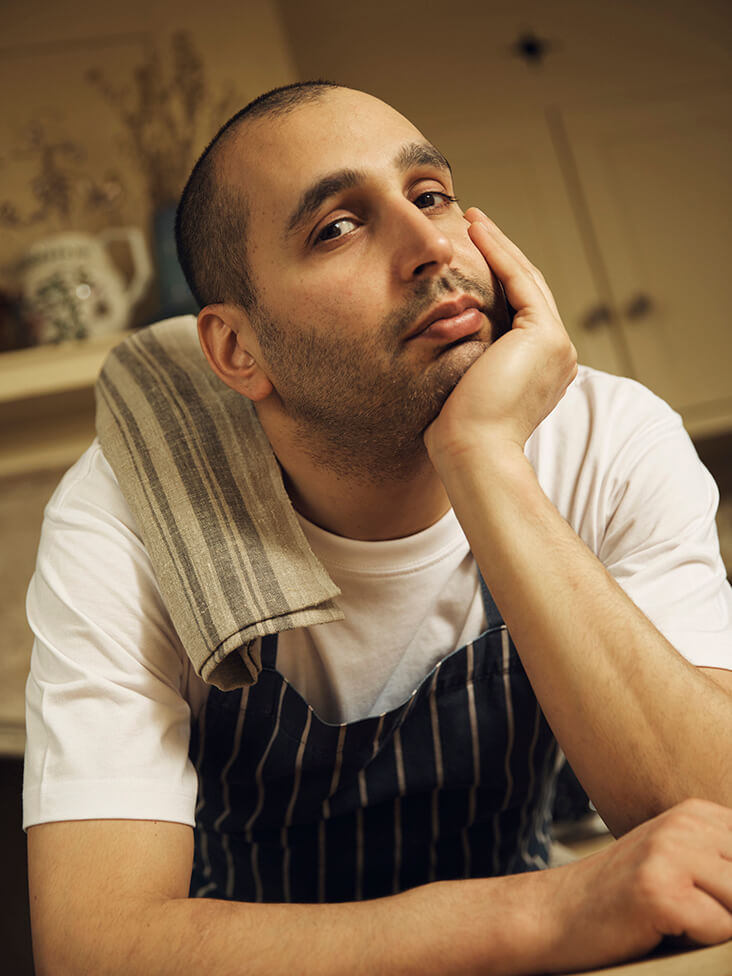
Kindness, empathy, and respect are crucial in any team environment. How do you integrate these values into your daily interactions at St John Bread and Wine?
“These qualities transcend the workplace; they are fundamental to who you are as a person. It’s about taking time for people, actively listening, and being attuned to their well-being. Sometimes, it’s about offering support, other times it’s simply about observant understanding. Personally, I’m not always naturally adept at this, especially when focused on work tasks. I consciously remind myself to practice empathy and kindness daily.”
St John is known for nurturing chefs who go on to establish successful restaurants. What makes the operational approach at St John Bread and Wine unique in fostering this talent?
“Fergus Henderson, the founder of St John, instilled a culture of calm and creativity. His philosophy, ‘Happy chefs make happy plates,’ is central to our ethos. A stressful environment hinders creativity and quality. We prioritize a nurturing space conducive to learning and growth. Screaming and abusive behavior have no place here.
Now that Fergus is less involved in the daily kitchen operations, it’s the head chefs who uphold his vision. Kitchen management is key to maintaining this culture. We have established guidelines and a framework rooted in teaching and nurturing. Our aim is to develop exceptional chefs who will contribute positively to the industry, carrying forward this ethos as they open their own establishments. This is how we believe we can collectively improve the restaurant industry.”
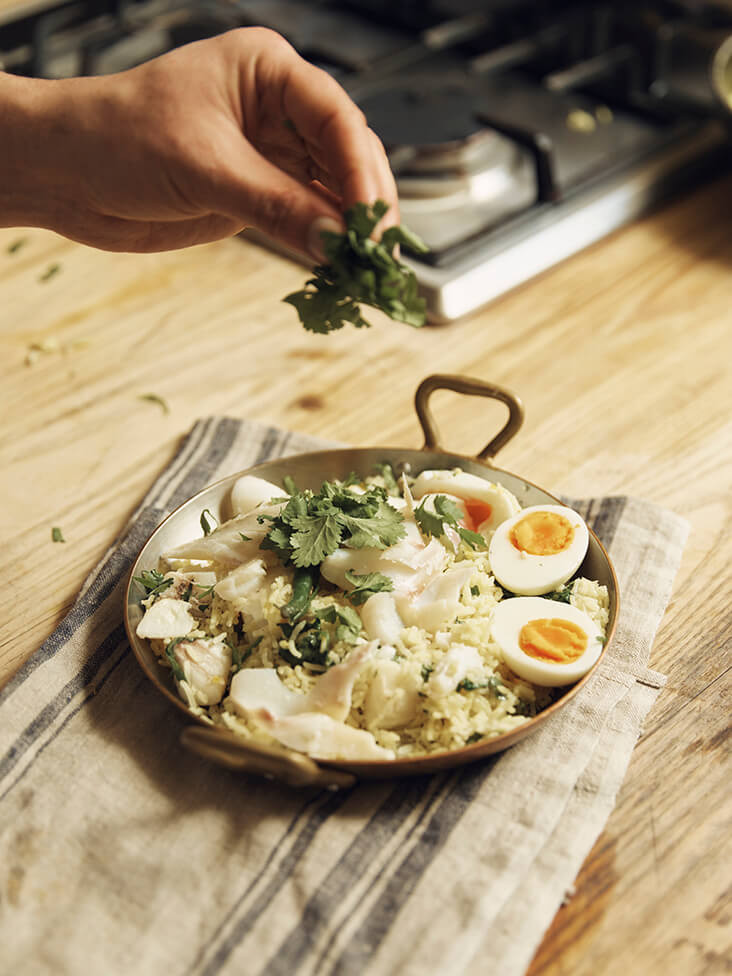
What sparked your initial decision to become a chef, and what continues to fuel your passion for cooking?
“Cooking has always been my path; it felt innate. From a young age, around eight, I declared to a teacher that I would become a chef. My mother recalls me watching cooking shows and then experimenting in the kitchen, proudly presenting my creations.
What I love most about cooking is the blend of rigor and unpredictability. No two days are ever identical. From developing new dishes and working with fresh ingredients to addressing staffing or supplier issues, it’s a constant state of dynamic problem-solving. This rhythm, driven by engagement rather than stress, is incredibly stimulating.”
Congratulations on publishing your book! Could you explain Parsi cuisine and your motivation for writing about it?
“I consider Parsi food to be one of the original fusion cuisines, a vibrant mix of Persian and Indian culinary traditions. From Persia, we have rice, nuts, saffron, and subtle spices. From India, we incorporate coriander, fish, coconut, meats, and bolder spices. It’s a uniquely rich and fascinating culture to explore through food.
Initially, I envisioned the book as a resource for chefs, particularly in the West, to understand Persian flavors. However, as the project evolved, I realized it was a vital opportunity to showcase the cuisine of a diminishing community and preserve an essential aspect of Parsi culture.”
What is the most valuable piece of advice you’ve ever received in your culinary journey?
“The best advice came from Gary Usher, a former sous chef and mentor. He emphasized punctuality, professional presentation, attentive listening to senior chefs, and always carrying a pen and notepad to record every lesson learned. This foundational advice guided me through my formative years as a chef. Beyond that, the wisdom of musicians like Neil Young and Bob Dylan has also been influential.”
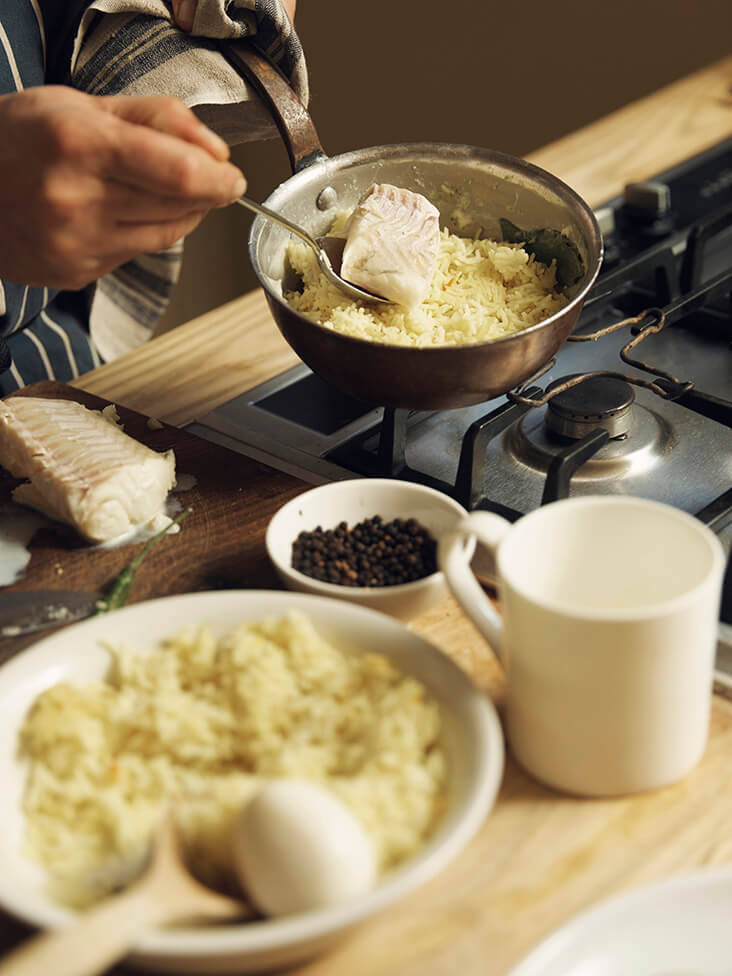
You clearly have a deep passion for your work. What does it mean to you to genuinely love your job, particularly in the demanding restaurant industry?
“It brings a rare sense of contentment within this industry. Too often, restaurant jobs are associated with anxiety and dread. In my eight years at St John Bread and Wine, I’ve never experienced that negativity. I feel incredibly fortunate to look forward to work, to collaborate with my team, and to create meals that hopefully bring joy and lasting memories to our guests.”
Seasonality is a key element in contemporary cuisine. How important is cooking with seasonal ingredients at St John Bread and Wine?
“In a restaurant setting like St John Bread and Wine, seasonality is crucial. We aim to educate our diners about seasonal eating and what produce is best at different times of the year. Our menu evolves twice daily, adapting organically to ingredient availability and quality. Rather than adhering to a rigid menu, we embrace flexibility. If a supplier informs me that a frost has damaged the broccoli order, we quickly adjust the dinner menu, perhaps featuring kale instead. It keeps us agile and innovative.
This approach also attracts chefs who value seasonality. An ever-changing menu ensures continuous learning and engagement. Chefs working here experience the full cycle of seasons and ingredients, from asparagus in spring to pumpkins in autumn. This constant evolution keeps their culinary interest piqued.
However, I believe pushing seasonality onto the general public needs nuance. Everyone has different budgets and access to food, and affordability must be considered.”
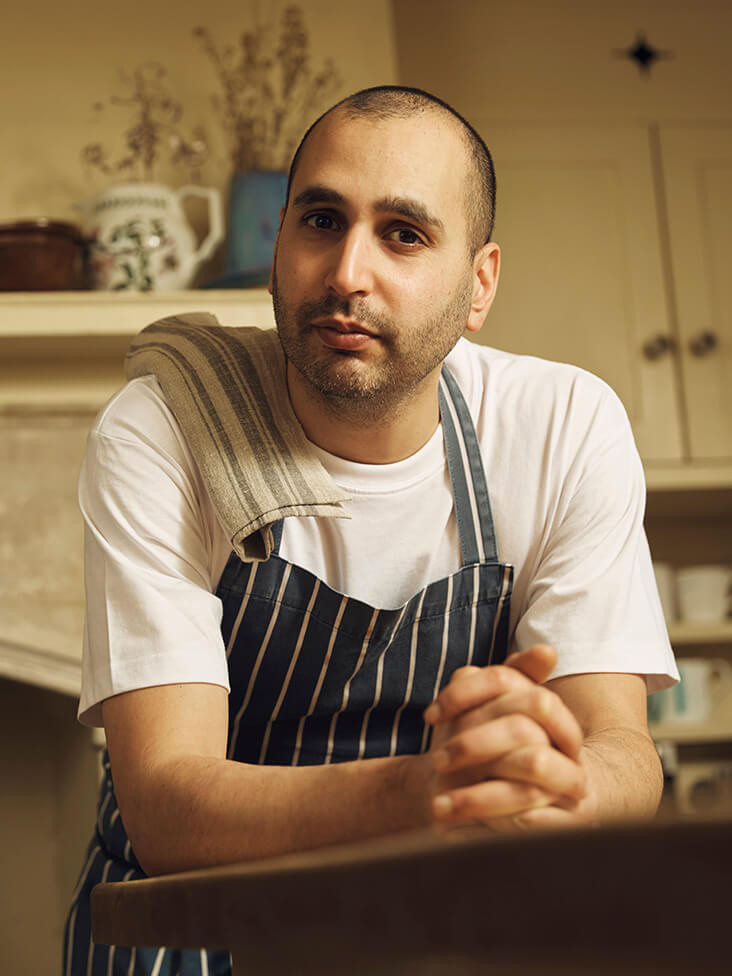
Working long hours is typical in your profession. How do you prioritize your mental and physical well-being? What are your essential self-care practices?
“Self-care is always a priority. On my days off, I consciously disconnect from cooking. I enjoy wandering through Soho with my camera, interacting with dogs, and relaxing at Maison Bertaux with a coffee. I also realized the negative impact of social media, particularly constantly seeing other chefs’ and restaurants’ feeds, which can breed self-doubt. Eliminating that pressure allows for greater authenticity. Now, my social media is mostly just dogs!”
Finally, for someone visiting London for the first time, beyond St John Bread and Wine, what other culinary experiences would you recommend?
“Naturally, I would recommend experiencing St John Bread and Wine to understand our approach to British cooking. Beyond that, I gravitate towards restaurants with bold flavors. Places like Black Axe Mangal in Highbury & Islington, Dumpling’s Legend in Chinatown, Mumbai Local in Alperton, and Smoking Goat in Shoreditch are all fantastic choices that offer diverse and exciting culinary experiences in London.”
[

